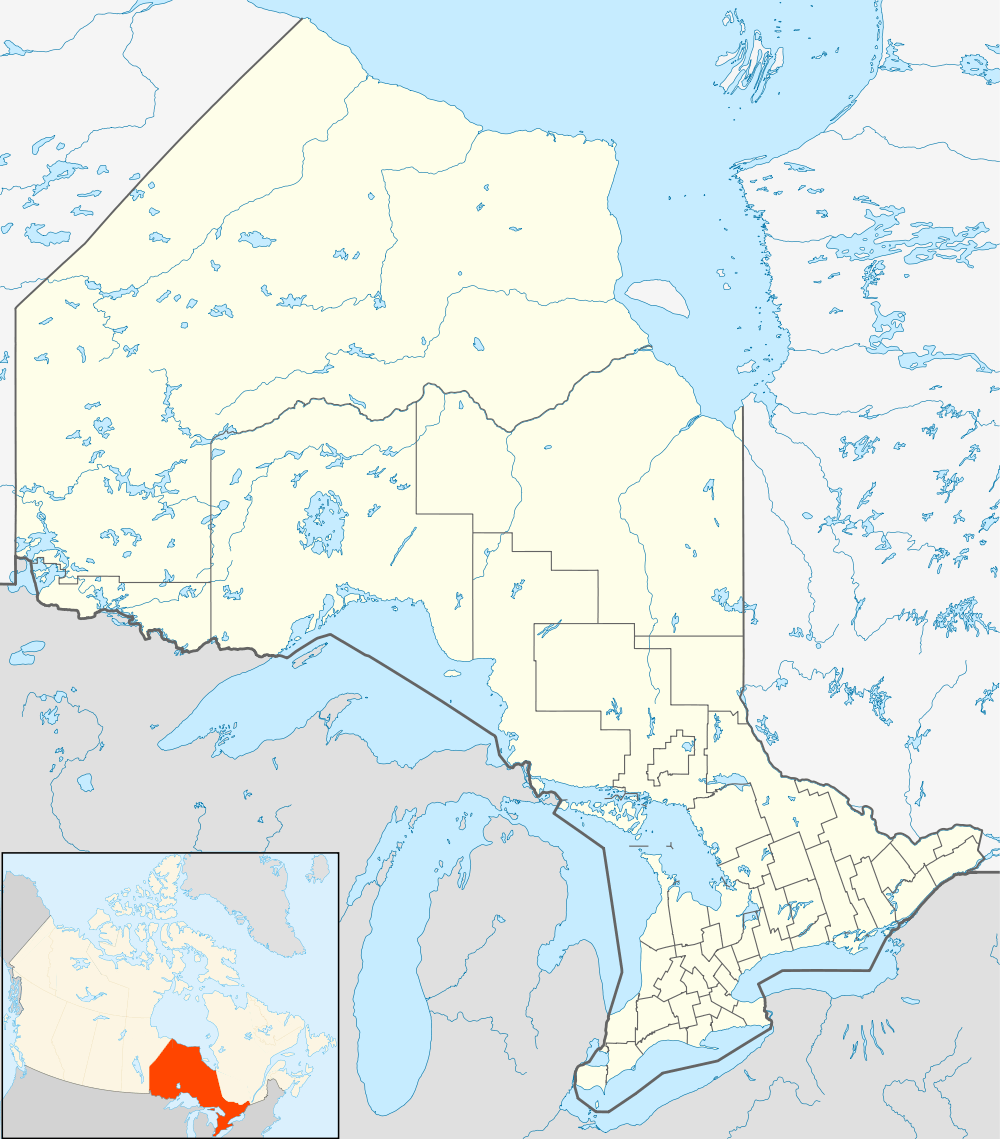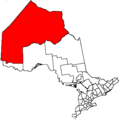Nibinamik First Nation
| Summer Beaver ᓃᐱᓇᒥᐦᐠ | |
|---|---|
| Indian settlement | |
| Summer Beaver Indian Settlement | |
 Summer Beaver | |
| Coordinates: 52°45′N 88°30′W / 52.750°N 88.500°WCoordinates: 52°45′N 88°30′W / 52.750°N 88.500°W | |
| Country |
|
| Province |
|
| District | Kenora |
| First Nation | Nibinamik |
| Area[1] | |
| • Land | 17.17 km2 (6.63 sq mi) |
| Population (2006)[1] | |
| • Total | 362 |
| • Density | 21.1/km2 (55/sq mi) |
| Website | nibinamik.ca |
Nibinamik First Nation (Oji-Cree language: ᓃᐱᓇᒥᐦᐠ (Niibinamik, "Summerbeaver"); unpointed: ᓂᐱᓇᒥᐠ), also known as Summer Beaver Band, is a small Oji-Cree First Nation reserve in Northern Ontario, located on the Summer Beaver Settlement that is connected to the rest of the province by its airport, and a winter/ice road that leads to the Northern Ontario Resource Trail.
In October 2009, Nibinamik First Nation had a registered population of 440 people, of which only 28 were located in the Summer Beaver Settlement. The First Nation is a member of the Matawa First Nations, a regional Chiefs council, and Nishnawbe Aski Nation, a Tribal Political Organization representing majority of First Nations in Northern Ontario.
Summer Beaver was policed by the Nishnawbe-Aski Police Service, an Aboriginal-based service, until its detachment was condemned and closed down.
History
Summer Beaver began as an intentional community in 1975 when a group of Anglican people, related by kinship, decided to leave Lansdowne House, a Catholic settlement. Violence had reached epic proportions in Lansdowne House in the 1970s and the community was divided along religious lines. The Summer Beaver people felt that they could make a better life for themselves and their children back at Nibinamik Lake. The Canadian government was wary of this move, and offered nothing in the way of support for quite some time.[2] Nibinamik was not recognized as a reserve until recently.
References
- 1 2 "Summer Beaver census profile". 2011 Census of Population. Statistics Canada. Retrieved 24 July 2015.
- ↑ Driben P. & Trudeau, R. When Freedom Is Lost: The Dark Side of the Relationship between Government and the Fort Hope Band. 1983. (University of Toronto Press.)
- Driben P., Trudeau, R. When Freedom Is Lost: The Dark Side of the Relationship between Government and the Fort Hope Band. 1983. (University of Toronto Press.)
External links
- INAC profile for Nibinamik First Nation
